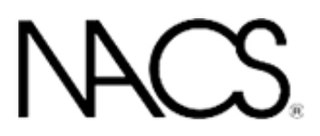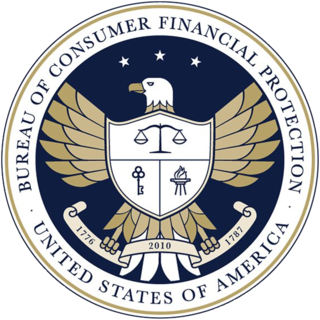In law, standing or locus standi is a condition that a party seeking a legal remedy must show they have, by demonstrating to the court, sufficient connection to and harm from the law or action challenged to support that party's participation in the case. A party has standing in the following situations:
Lujan v. Defenders of Wildlife, 504 U.S. 555 (1992), was a landmark Supreme Court of the United States decision, handed down on June 12, 1992, that heightened standing requirements under Article III of the United States Constitution. It is "one of the most influential cases in modern environmental standing jurisprudence." Lily Henning of the Legal Times stated that:
Chevron U.S.A., Inc. v. Natural Resources Defense Council, Inc., 467 U.S. 837 (1984), was a landmark decision of the United States Supreme Court that set forth the legal test used when U.S. federal courts must defer to a government agency's interpretation of a law or statute. The decision articulated a doctrine known as "Chevron deference". Chevron deference consisted of a two-part test that was deferential to government agencies: first, whether Congress has spoken directly to the precise issue at question, and second, "whether the agency's answer is based on a permissible construction of the statute".
Commodity Futures Trading Commission v. Schor, 478 U.S. 833 (1986), was a case in which the Supreme Court of the United States held an administrative agency may, in some cases, exert jurisdiction over state-law counterclaims.

The National Association of Convenience Stores (NACS) is a trade association representing the convenience and fuel retailing industry. Founded in 1961, NACS has thousands of member companies, primarily in the United States but also in about 50 other countries. NACS conducts market research, hosts conferences and trade shows, and conducts political and legal advocacy. NACS is particularly concerned with the regulation of motor fuels, high credit card swipe fees, and labor law.
Ledbetter v. Goodyear Tire & Rubber Co., 550 U.S. 618 (2007), is an employment discrimination decision of the Supreme Court of the United States. The result was that employers could not be sued under Title VII of the Civil Rights Act of 1964 over race or gender pay discrimination if the claims were based on decisions made by the employer 180 days or more before the claim. Justice Alito held for the five-justice majority that each paycheck received did not constitute a discrete discriminatory act, even if it was affected by a prior decision outside the time limit. Ledbetter's claim of the “paycheck accrual rule” was rejected. The decision did not prevent plaintiffs from suing under other laws, like the Equal Pay Act, which has a three-year deadline for most sex discrimination claims, or 42 U.S.C. 1981, which has a four-year deadline for suing over race discrimination.
Smiley v. Citibank, 517 U.S. 735 (1996), is a U.S. Supreme Court decision upholding a regulation of the Comptroller of Currency which included credit card late fees and other penalties within the definition of interest and thus prevented individual states from limiting them when charged by nationally-chartered banks. Justice Antonin Scalia wrote for a unanimous court that the regulation was reasonable enough under the Court's own Chevron standard for the justices to defer to the Comptroller.
Christensen v. Harris County, 529 U.S. 576 (2000), is a Supreme Court of the United States case holding that a county's policy of requiring employees to schedule time off to avoid accruing time off was not prohibited by the Fair Labor Standards Act.
Tolling is a legal doctrine that allows for the pausing or delaying of the running of the period of time set forth by a statute of limitations, such that a lawsuit may potentially be filed even after the statute of limitations has run. Although grounds for tolling the statute of limitations vary by jurisdiction, common grounds include:
American Electric Power Company v. Connecticut, 564 U.S. 410 (2011), was a United States Supreme Court case in which the Court, in an 8–0 decision, held that corporations cannot be sued for greenhouse gas emissions (GHGs) under federal common law, primarily because the Clean Air Act (CAA) delegates the management of carbon dioxide and other GHG emissions to the Environmental Protection Agency (EPA). Brought to court in July 2004 in the Southern District of New York, this was the first global warming case based on a public nuisance claim.

The Consumer Financial Protection Bureau (CFPB) is an independent agency of the United States government responsible for consumer protection in the financial sector. CFPB's jurisdiction includes banks, credit unions, securities firms, payday lenders, mortgage-servicing operations, foreclosure relief services, debt collectors, for-profit colleges, and other financial companies operating in the United States. Since its founding, the CFPB has used technology tools to monitor how financial entities used social media and algorithms to target consumers.
United States v. Bormes, 568 U.S. 6 (2012), is a decision by the Supreme Court of the United States holding that the Little Tucker Act, which provides jurisdiction to federal courts for certain claims brought against the federal government, does not apply to lawsuits brought under the Fair Credit Reporting Act (FCRA).
The Durbin amendment, implemented by Regulation II, is a provision of United States federal law, 15 U.S.C. § 1693o-2, that requires the Federal Reserve to limit fees charged to retailers for debit card processing. It was passed as part of the Dodd–Frank financial reform legislation in 2010, as a last-minute addition by Dick Durbin, a senator from Illinois, after whom the amendment is named.
Gabelli v. SEC, 568 U.S. 442 (2013), was a United States Supreme Court case in which the Court ruled that the statute of limitations for filing civil penalty actions initiates when the offending act is committed or finished.
King v. Burwell, 576 U.S. 473 (2015), was a 6–3 decision by the Supreme Court of the United States interpreting provisions of the Patient Protection and Affordable Care Act (ACA). The Court's decision upheld, as consistent with the statute, the outlay of premium tax credits to qualifying persons in all states, both those with exchanges established directly by a state, and those otherwise established by the Department of Health and Human Services.
Zenith Radio Corp. v. Hazeltine Research, Inc. is the caption of several United States Supreme Court patent–related decisions, the most significant of which is a 1969 patent–antitrust and patent–misuse decision concerning the levying of patent royalties on unpatented products.
Rotkiske v. Klemm, 589 U.S. ___ (2019), was a decision by the Supreme Court of the United States involving the statute of limitations under the Fair Debt Collection Practices Act of 1977. The Court ruled that the statute of limitations begins one year after the alleged FDCPA violation took place, not one year after the violation was discovered by the plaintiff. This ruling affirmed a decision by the 3rd Circuit Court of Appeals. It is noteworthy for being the first signed opinion released from the 2019 term. It is also noteworthy for resolving a circuit split regarding a major consumer protection law.
Peter v. NantKwest Inc., 589 U.S. ___ (2019), was a United States Supreme Court case from the October 2019 term.
McDonough v. Smith, 588 U.S. ___ (2019), was a United States Supreme Court case from the October 2018 term. In a 6–3 ruling, the Court held that the 3-year statute of limitations for a fabrication of evidence civil lawsuit under section 1983 of the Civil Rights Act begins to run when the criminal case ends in the plaintiff's favor.
Loper Bright Enterprises v. Raimondo, 603 U.S. ___ (2024), is a landmark decision of the United States Supreme Court in the field of administrative law, the law governing regulatory agencies. Together with its companion case, Relentless, Inc. v. Department of Commerce, it overruled the principle of Chevron deference established in Chevron U.S.A., Inc. v. Natural Resources Defense Council, Inc. (1984), which had directed courts to defer to an agency's reasonable interpretation of an ambiguity in a law that the agency enforces.




